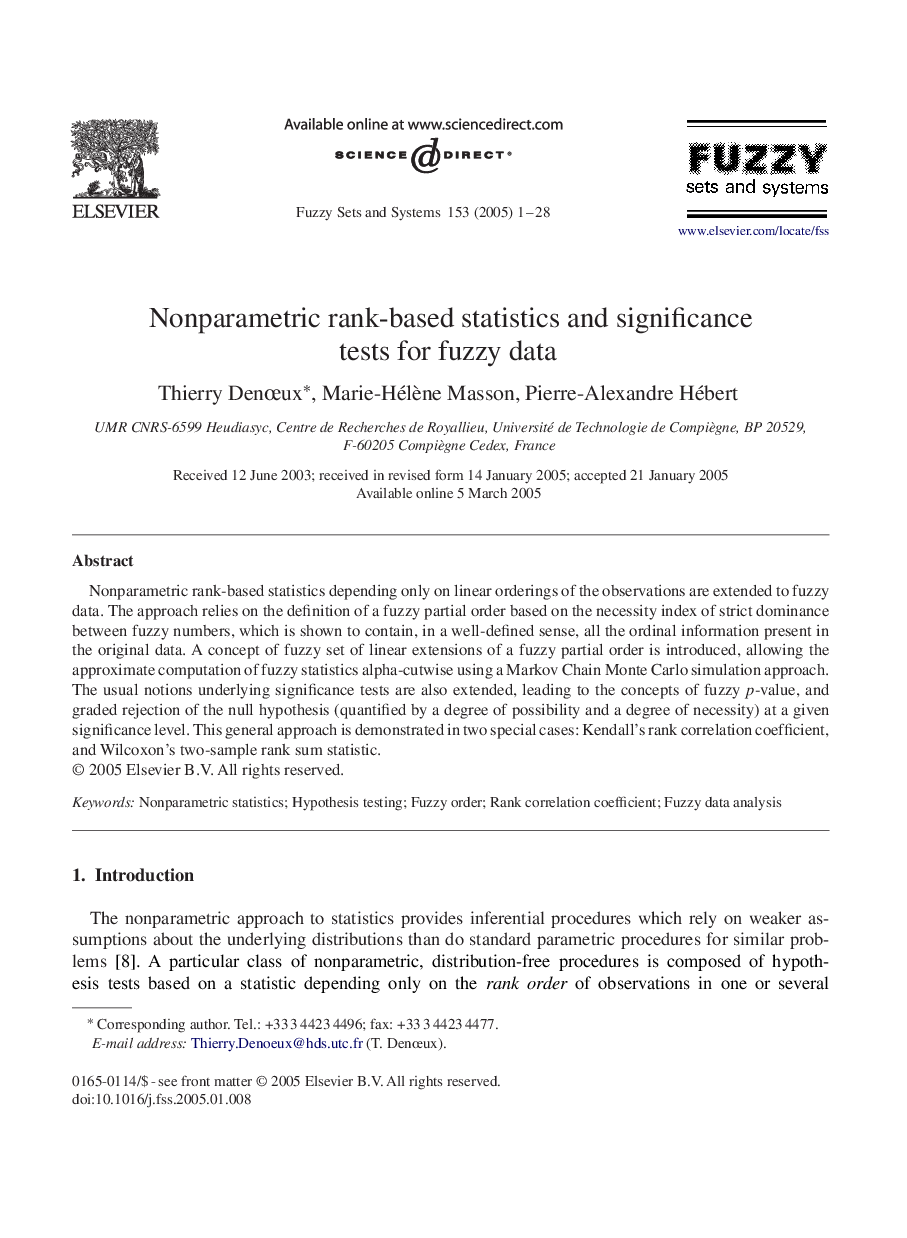| Article ID | Journal | Published Year | Pages | File Type |
|---|---|---|---|---|
| 10323706 | Fuzzy Sets and Systems | 2005 | 28 Pages |
Abstract
Nonparametric rank-based statistics depending only on linear orderings of the observations are extended to fuzzy data. The approach relies on the definition of a fuzzy partial order based on the necessity index of strict dominance between fuzzy numbers, which is shown to contain, in a well-defined sense, all the ordinal information present in the original data. A concept of fuzzy set of linear extensions of a fuzzy partial order is introduced, allowing the approximate computation of fuzzy statistics alpha-cutwise using a Markov Chain Monte Carlo simulation approach. The usual notions underlying significance tests are also extended, leading to the concepts of fuzzy p-value, and graded rejection of the null hypothesis (quantified by a degree of possibility and a degree of necessity) at a given significance level. This general approach is demonstrated in two special cases: Kendall's rank correlation coefficient, and Wilcoxon's two-sample rank sum statistic.
Keywords
Related Topics
Physical Sciences and Engineering
Computer Science
Artificial Intelligence
Authors
Thierry DenÅux, Marie-Hélène Masson, Pierre-Alexandre Hébert,
